This content is restricted to subscribers

The views, opinions and positions expressed by columnists and contributors are the author’s alone. They do not inherently or expressly reflect the views, opinions and/or positions of our publication.

This content is restricted to subscribers
The views, opinions and positions expressed by columnists and contributors are the author’s alone. They do not inherently or expressly reflect the views, opinions and/or positions of our publication.
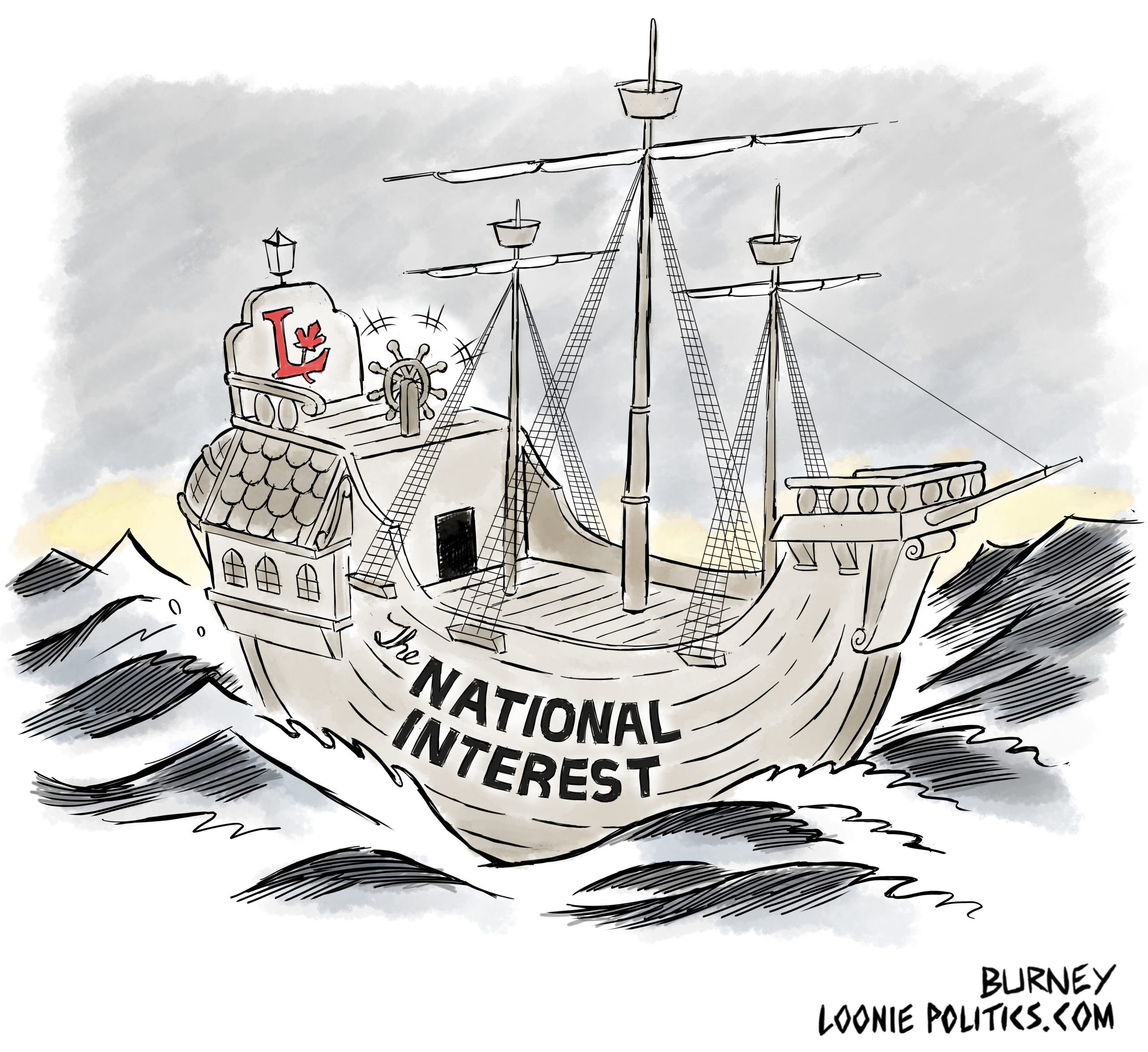
Just as a rising tide famously floats many boats, one that goes out with a whoosh leaves a lot of debris on the beach. And when we start tallying up the true cost of the pandemic quarantine, a lot of government programs are going to be left broken and smelly amid the seaweed.
I know, I know. Never make predictions, especially about the future. But if this one were in a sailing race you'd bet on it because it's already in sight with a big lead: In the wake of the pandemic, governments will find themselves spending so much more and taking in so much less that something will have to give. A lot of things in fact.
At the moment politicians are very full of themselves for pumping "liquidity" in vast amounts "into" the economy while giving us sweeping orders in solemn tones, the sheep are huddling gratefully around the trough in the paddock, and our leaders think they're Churchill or FDR. But some day they, and we, are going to realize "liquidity" is a euphemism for "borrowed money" or the printed kind, and that the metaphor of pumping it "into" the economy wrongly implies they keep a big tank of it somewhere else.
On that day, all government spending is going to be battered by a storm that will reveal that much of it was badly constructed and could not last.
It's trite to point out that governments are inefficient and generally get away with it for a variety of reasons including low expectations based on long experience. And that it's been inefficient since before Rameses II was a thing because the state doesn't have feedback mechanisms like profit and loss that draw reinforcements toward success and repel them from failure.
Entrepreneurs don't like to admit failure any more than pundits or politicians. But in business, you either put your money where your mouth is or swallow your words, and if you do the former and you're wrong, the invisible hand grasps your collar and flings you from your shop.
Governments genuinely don't have much way of knowing what's working. Nor do they have much incentive to figure it out because when things fail they can always go get more of someone else's money. Well, almost always.
In the coming months and years it won't be true. Too many governments will be chasing too little available money in borrowing markets. There will be too little tax revenue. And it will be a rude awakening.
Right now our Prime Minister is pretty much in his element. Admittedly his gravitas needed work and still does. But he's bossy and profligate and loving it.
His promises to balance the budget were always more of a cover story for his voters than for him. Nobody believed it. Whereas he certainly did believe in this fabled "multiplier effect" they told us of in college before the debt crisis of the 1980s and 1990s told us otherwise.
The theory is that a dollar spent by government "stimulates" the private economy in such a way that it creates well over a dollar in prosperity. So much more, in fact, that it covers the tax revenue needed to pay the interest and maybe even some day the principal.
Don't give me that look. I know it's silly and there's no free lunch. But if they didn't believe it, they'd have balanced the books while the balancing was good. Instead even the Harperites said it would be reckless not to run deficits in a recession or eliminate them too fast in a recovery. See, they "stimulate" the economy whereas paying down debt turns it off.
Well, it ain't so. Even if a $200 billion federal deficit is justified to rush emergency aid to people and firms, it's going to be very difficult to pay for and will make economic recovery harder not easier. So the rusty hulk of Keynesianism will be left broken and rotting on the beach as the tide ebbs. But not alone.
For grim starters, Canadian health care was already bursting at the seams. Hospitals were routinely over 100% capacity, waiting lists went round the block and into next fall, healthcare took over 40% of program spending and rising in every jurisdiction and instead of making structural reforms while bobbing safely at anchor rather than in a howling gale with rocks everywhere, governments bitterly resisted any effort to make the system more flexible, responsive or resilient. Including the BC provincial authorities fighting Brian Day et al in court for 11 years to deny you the right to control your own body when it came to getting it looked after.
It will have to stop. The hospitals did a great job of clearing the decks for a surge of COVID-19 patients that thus far has not really materialized. But only by pushing everyone else even further back on the waiting lists. Our health system, the most restrictive in the world, isn't going to stretch in response, it's going to snap. And with it, the rationalization that private health care is greedy substandard and abusive, while the centrally planned kind is superb and generous, will be left out for the seagulls.
A lot of other minor things will get tossed over the side as governments scramble to stay afloat carrying massive subsidies through a stormy economy including, I hope, wasteful spending on green energy and absurd cross-subsidies in the power system.
So will some very major ones. Including, I believe, the pretense that various governments don't have massive unfunded liabilities most notably for overly generous pension systems. A lot of retired public sector employees honestly think they paid in their "fair share" over the years and that if only government ordered every business to pay all its employees a pension equal to 70% of their peak working income, for as long as they or their partner shall live it, would "stimulate" the economy and deliver social justice. Instead this whole "defined benefit" thing is going to wind up there on the beach, looking funny and smelling bad.
I'm not gloating here. I have been issuing storm warnings for decades, and we should have been offloading useless ballast and making repairs in fair weather not with huge waves pounding us while a riptide drags us toward shoals we should never have moored near in the first place. But it's here and we better face it.
So here's one more thing we might chuck over the gunwales: a certain smug complacency about the Canadian big-government way of doing things that frankly I don't know why we ever brought onto the boat.
Photo Credit: Jeff Burney, Loonie Politics
The views, opinions and positions expressed by columnists and contributors are the author’s alone. They do not inherently or expressly reflect the views, opinions and/or positions of our publication.

Alberta Premier Jason Kenney deserves high marks for the decision to help out other provinces with pandemic supplies.
The province is going to pass along masks, ventilators and protective gloves to Ontario, Quebec and B.C.
According to data modelling Alberta has more equipment than it needs to meet the COVID-19 crisis, the premier said in a news conference last week, adding he couldn't in all good conscience allow other provinces to go without.
He did slightly sully the purity of this act of generosity by indicating Alberta expects other provinces to respond in kind with help for Alberta's current economic crisis, but still the whole thing was a lovely gesture.
And Kenney also deserves kudos for giving credit where credit is due. He trotted out Jitendra Prasad, the head of Alberta Health Services' procurement system, to take a bow for having the foresight to order up all that necessary gear way early in the course of the pandemic spread.
Imagine, a public servant in a public health system getting a lot of love from Jason Kenney. It wasn't the first time Kenney had mentioned AHS during the current crisis either. He praised the prudent planning and stockpiling of supplies related to the pandemic as far back as March 20.
Prasad returned the love at the news conference, nodding to his political masters.
"We are very, very fortunate that we have a single health care system in Alberta which has given us an enormous amount of experience in being able to do the things we are doing today. A lot of credit goes to the leadership of AHS, to the support we have from the government, the premier personally and the minister."
Kenney also pointed out that AHS, the big unified administrator of all things health in Alberta, is a purchaser with global reach, able to leverage its knowledge and clout to reach out to suppliers around the world.
The merit of skilled public servants working in a public health care system suddenly takes centre stage in the midst of a major health crisis. Witness the hot mess happening south of the border for evidence of the merits of public versus private health.
Prasad pointed out that it was a wealth of experience that allowed his team to be able to identify the seriousness of the warnings coming from their contacts in China and elsewhere and act in the interests of the people of Alberta.
The worth of public service isn't something top of mind for the taxpayer or politicians hungry for votes in relatively stable times.
When Kenney was campaigning before the last election he vowed that one of his first acts would be a major review of AHS and its enormous budget.
"I hear from front-line health professionals all the time — nurses, physicians, paramedics and others — that there's enormous waste in the administrative centre of our system and an enormous amount of rationing," he told reporters in February, 2019.
Certainly the pencil pushers at AHS procurement have dispelled some of that impression. Front line workers need the savvy bureaucrats who see supply chain and infrastructure gaps developing before they become a crisis.
Not all the smart guys are in the private sector, it seems.
That said, not all public sector systems work with the kind of efficiency seen in Alberta. Most provinces have a fragmented public system run by several local boards. Alberta's single administration model, dating back to 2008, has proved its worth.
But being big has also made AHS a regular ideological target, particularly of conservative politicians who yearn to see an increase in the private health care option in the province.
Surely the narrative going forward needs to take into account some of the lessons learned from COVID-19. A stable public health care system, staffed by dedicated professionals who's prime motivator is public good, not private profit, deserves the kind of respect Kenney is showing the AHS procurement division in this time of crisis.
It's clear that looking good on the national stage has value for Kenney. It took a team of able government workers to allow the premier to make his grand gesture.
Photo Credit: The Georgia Straight
The views, opinions and positions expressed by columnists and contributors are the author’s alone. They do not inherently or expressly reflect the views, opinions and/or positions of our publication.
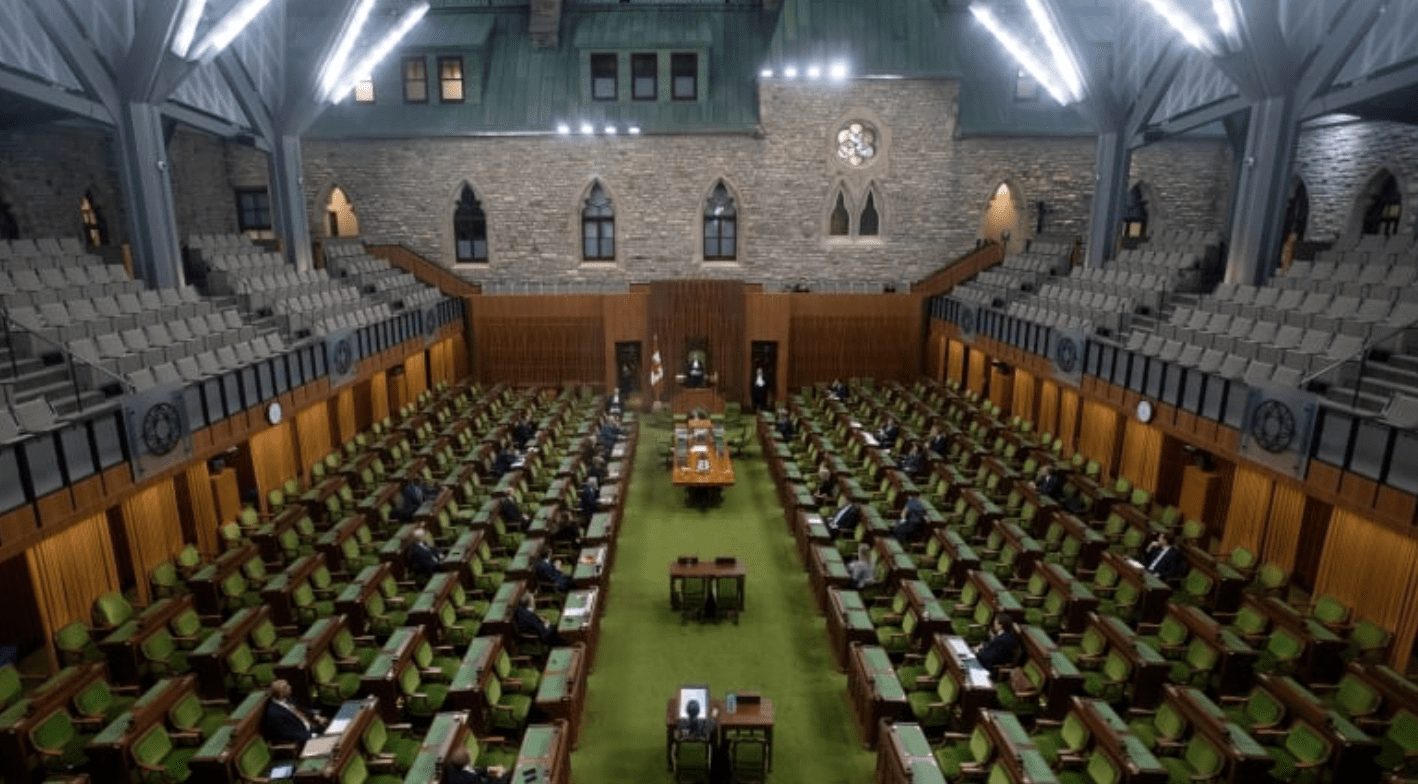
There was no shortage of back-patting for the emergency sitting of Parliament on Saturday, as it reconvened in skeleton format to pass the latest bill on emergency measures to deal with the ongoing pandemic. With the opposition parties already on-side for the substance of Bill C-14 before the sitting began, it was a lot of pro forma action, and a little bit of the usual kinds of political theatre that had been pent up for the past several weeks with little outlet. Nevertheless, watching the proceedings as they unfolded showed that the need for an ongoing skeleton parliament during these pandemic times, because what happened in this emergency sitting was not the kind of oversight that Canadians need or expect.
The biggest indictment of what happened is that the bill was agreed to beforehand, which means that we have no public record of what the original version was like and what amendments were made as part of the negotiations between the parties. This is important, because without a public record, we have no way of holding government to account, and future historians have no basis for which to judge what happened during the pandemic. We could ask the government to produce the original version of the bill, but it won't happen, because draft legislation is considered Cabinet confidence and is classified as Secret, and will not be released. We have a hole in the public record because the first instinct in the face of a pandemic was to simply shutter Parliament rather than to take reasonable precautions and modify the operations such as reducing to a skeleton complement so that this kind of necessary work can continue, and a record can be kept.
When the sitting did convene on Saturday, what followed wasn't legislative debate. Instead we had a couple of hours of Committee of the Whole, which was essentially run like a quasi-Question Period for the duration, followed by speeches on the pandemic and the government's responses, but little to do with the bill itself. Other speeches were about what that particular party wanted the government to do which was never going to happen (for the Conservatives, rebating GST paid by businesses even though those funds were only ever in trust and didn't actually belong to those businesses; for the NDP, the demand to just send everyone $2000, even though we don't have a magic database or delivery system that could make that happen any faster than the current Canada Emergency Response Benefit). There was no actual debate on the merits or the substance of the bill because it was agreed to entirely beforehand.
Over in the Senate, much the same occurred they resolved into Committee of the Whole as well, but only quizzed Bill Morneau and his Senior Associate Deputy Minister, and all of the speeches were at Third Reading of the bill, mostly in the flavour of "I support this bill, but…" followed by their particular grievances with how the government has handled the pandemic. There were no speeches on the substance of the bill itself, and while questions about it may have been asked of Morneau, the Committee of the Whole process was separate from the actual legislative debate.
The point here is that if we are to ensure that Parliament is fulfilling its proper functions, we need not only proper legislative debate, but ongoing accountability sessions, and Question Period is a decent way to achieve that. If a first version of the bill could have been drafted and tabled in the House, followed by actual debate on its merits, and the amendments being tabled in an open and public manner, we could have confidence that everything was happening above-board and on the record. If the opposition parties and the government wanted to negotiate how to amend the bill once it had been tabled, then that's fine it's not unlike how things happen on a regular basis. It wouldn't take any additional time to ensure there was proper debate anyway, given that a draft of the bill was given to the opposition parties a week before the emergency sitting, and said sitting took 48 hours to recall officially all time that could be used to ensure the bill got the proper legislative scrutiny it deserves.
A proper, public process would also allow more MPs to participate from home while the small number in a skeleton parliament represented them in the Commons, because it would be on the table and we wouldn't have to worry about keeping the draft bill under wraps because it's secret, which means it's more likely to be shared among the caucus rather than the leadership team alone. Caucus calls could happen and MPs could give their input to their sitting colleagues then much as the daily calls between MPs and government are currently happening (which Elizabeth May described during her speech on Saturday, where she said that concerns she raised wound up as fixes in the bill).
Parliament is due back in some form on April 20th, according to the motion passed on Saturday, but we'll see in what form. While the Liberals continue to push for "virtual" sittings in spite of the constitutional and technological hurdles (simultaneous interpretation over teleconference is hard, as is ensuring good connections that don't drop, or that the transmission quality isn't so poor that it affects the ability to record it for Hansard), I will continue to press for the more practical option of a skeleton parliament to continue to sit. Justin Trudeau and his House Leader, Pablo Rodriguez, continue to say things like "We can't tell Canadians to stay home then meet in Parliament every day," as though the essential democratic service that parliament provides is somehow above what we're asking people who work in our grocery stores and pharmacies to undertake, even though it's far easier for MPs and senators and the staff inside the West Block and the Senate building to properly physically distance than those grocery store workers. Parliament matters, and it needs to be able to do its function now more than ever.
Photo Credit: CBC News
The views, opinions and positions expressed by columnists and contributors are the author’s alone. They do not inherently or expressly reflect the views, opinions and/or positions of our publication.
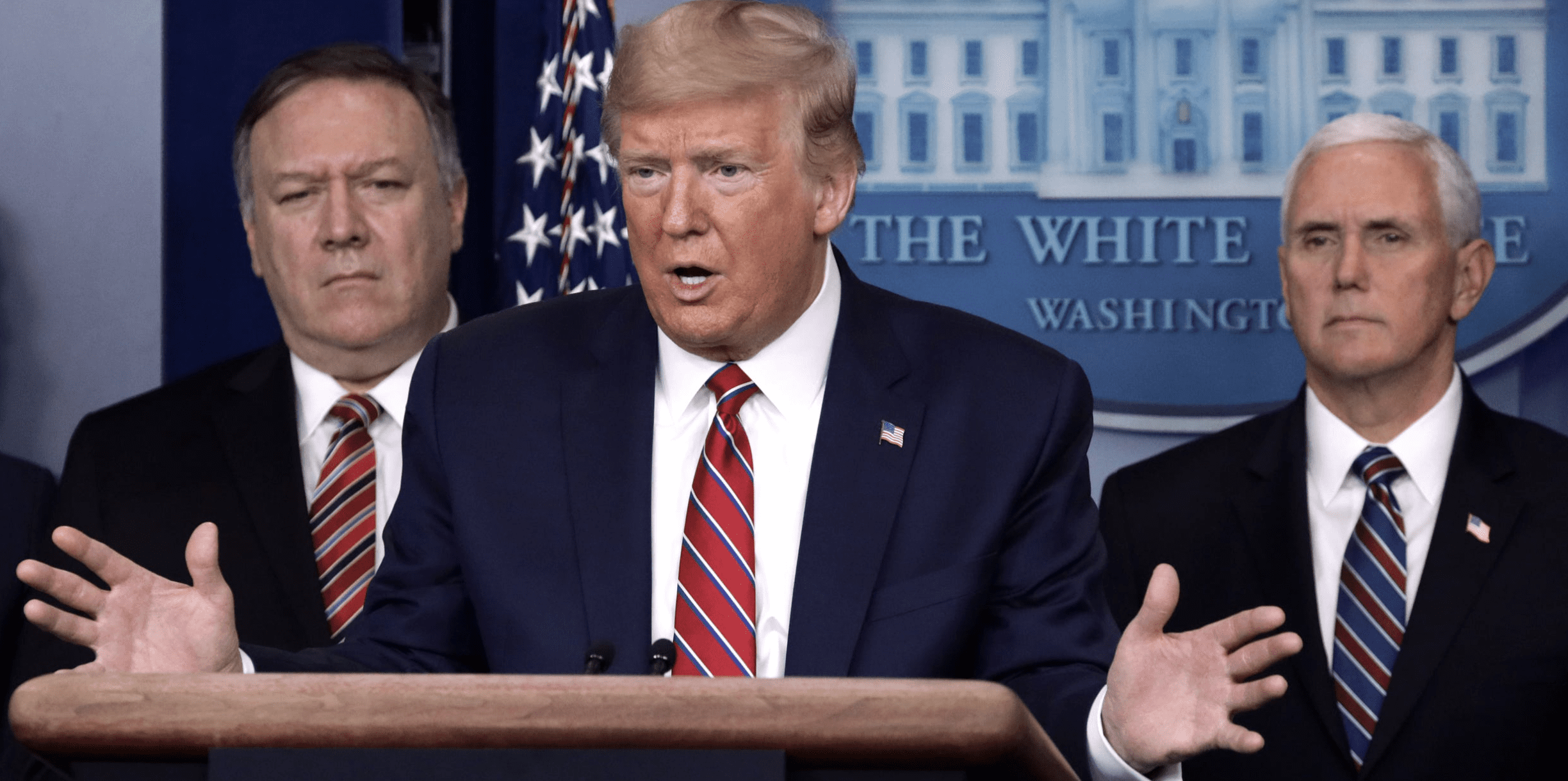
Donald Trump hasn't had many achievements.
Now, before the Spring of 2020, he and his cabal would point to the economy and the stock markets, of course. Trump would regularly say he was the reason the economy and the markets were going up.
But, in politics, if you are dumb enough to claim credit for things on their way up, you have to take the blame when they go down, too. And things are way, way, way down.
The stock markets have lost trillions in value $7.3 trillion on the S&P 500, alone, since its mid-February high. And the world economy? We're no longer in a global recession, some economists say we may well be hurtling towards a depression, with millions of lost jobs to go with it. Nobel Prize-winning economist Robert Shiller says a climate of fear is sending us that way.
So much for your supposed economic achievements, Mr. Trump. They're gone. Thanks to the coronavirus pandemic and the Trump regime's abject refusal to prepare for its arrival on American shores the economy and the markets are goners for the foreseeable future.
But about one thing Donald Trump can still claim some credit. And it is indisputably his: disinformation. He remains the world-champ at that.
Entering the crowded field to become the Republican presidential nominee in 2016, Trump and his team knew he had many more negatives than positives credible allegations of racism, law-breaking and sexual misconduct. They knew those things would be reported on, and amplified by his political opponents.
So Trump decided to shoot the messenger.
"Fake news," more than anything else, became his rallying cry from the earliest days of his presidential campaign. Any reporter or news organization who dared shine a critical light on Trump would be demonized. "Fake news" along with kvetching tweets about "witch hunts" and "failing" and "money-losing" news organizations insulated Trump from attacks.
It worked. Within the Republican base a group who remain wildly enthusiastic about Trump, his missteps on coronavirus notwithstanding antipathy towards the news media is widespread.
Asked if fake or made-up news was a problem in the United States, a whopping 90 per cent of self-identified Republican respondents to a Pew 2019 poll said it was "a very big problem" or a "moderately big problem." Said the Pew pollsters: "Republicans are about three times more likely than Democrats (58 percent versus 20 percent) to say that journalists create a lot of fake news."
Braying and screeching about "fake news," as a political strategy, has been Donald Trump's greatest political achievement. It has protected him from serial scandals that would have destroyed the fortunes of any other politician.
During the COVID-19 global pandemic, Donald Trump's fake news strategy hasn't diminished. If anything, it has grown worse.
On March 6, he said that "anybody who wants a [coronavirus] test can get a test." False.
On March 12, he said his administration's coronavirus response "is one of the best." False.
On March 15, he said "we have tremendous control" of the virus. False.
On March 23, he said an anti-malaria drug was "approved" to fight coronavirus. False.
On March 30, he said his administration "inherited a broken test" for coronavirus. False.
Trump said on April 1 that the U.S. had implemented a travel ban "way before anybody else." False.
On April 6, he said the Obama administration "didn't even know [swine flu] was happening." False.
You could go on and on and presumptive Democratic presidential nominee Joe Biden actually did, in a devastating ad that documented Trump's lies growing exponentially during the pandemic, along with the number of Americans killed by the virus.
But among Trump's political core vote, none of it matters. While several polls show Biden as many as ten points ahead of Trump nationally and Trump's popularity underwater with most Americans the GOP base is still with him. Last week, a CNN poll found that an astonishing 88 per cent of Republicans approved of Trump's handling of the coronavirus crisis.
In recent political history, then, there has never been a politician who has complained so loudly, or so often, about "fake news."
And nor has there been one who has benefitted more from being the principal source of fake news.
Before the pandemic, and now during it, "fake news" remains Donald Trump's main and only achievement.
Photo Credit: Business Insider
The views, opinions and positions expressed by columnists and contributors are the author’s alone. They do not inherently or expressly reflect the views, opinions and/or positions of our publication.
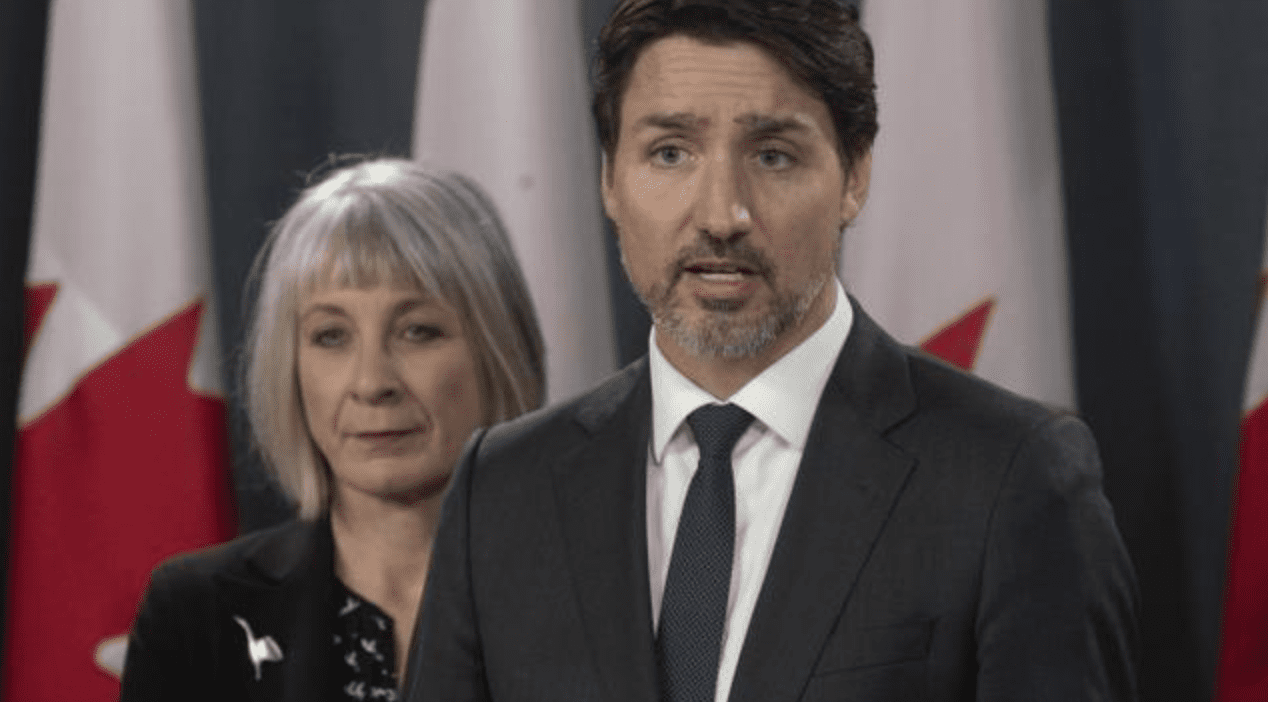
One interesting side-effect of the pandemic currently sweeping the globe is that it's giving a good name to authoritarianism.
Suddenly our political leaders, from city councillors to premiers, to prime ministers, are being hailed by society as heroes because they're implementing draconian measures aimed at ruthlessly stamping out anything remotely resembling improper social distancing.
The more they've emulated Joseph Stalin in this regard the more we like them.
Consider, for instance, how his bold handling of the virus crisis has totally revamped the image of Ontario Premier Doug Ford.
Recall, that just a few months ago the mainstream media was portraying Ford as an oafish, callous, incompetent barbarian who took perverse pleasure in gutting the province's precious social programs.
Now, by contrast, in the eyes of the media, he's the toast of the town, he's a Winston-Churchill-style statesman, he's a man even the left-wing Toronto Star is praising.
Why the change?
Well, it's because Ford took quick and decisive action to implement emergency measures that essentially shut down Ontario's economy and placed virtually the entire population under house arrest.
Now, don't get me wrong; I'm not saying Ford did anything wrong.
After all, in doing what he did, Ford may have helped to blunt the impact of the virus in Ontario in short, he acted like a strong leader at a time when we needed a strong leader.
And yes, in times of crisis we want leaders to cut through the red tape, we want leaders to rise above all the petty bickering and stalemates that often mark democratic politics, we want leaders who will take forceful and immediate actions to keep us safe.
It's a part of human nature.
Indeed, the ancient Roman republic incorporated this sentiment into its political system.
Whenever the republic faced a serious threat, the Senate would grant to one of its members full dictatorial powers for a period of six months.
So yes, for both practical and emotional reasons, authoritarianism is sometimes needed.
Yet, there's also an inherent danger in flirting with dictatorial rule; once leaders get a taste of despotic power, they often don't want to give it up.
The Roman republic, for example, basically ended when Julius Caesar decided to declare himself "Dictator for life."
What's more, there'll always be those who'll prefer dictatorship to democracy, arguing if an authoritarian ruler can more efficiently solve serious problems in times of crisis, it can also more efficiently solve serious problems in times when things are good.
In fact, thousands of years ago, the Greek philosopher Plato denounced Athenian democracy as anarchic and argued that society would be better off if only the wisest ruled.
It's a mindset that has even lasted into our modern age.
Keep in mind in the 1930s people would praise Italian fascist dictator Benito Mussolini for making "the trains run on time."
Or more recently, there's Prime Minister Justin Trudeau's famous comment about how he admired the efficiency of China's communist dictatorship.
But are dictatorships really more efficient than democracies?
Maybe they are in the short term, but I'd argue the evidence suggests that, for all its faults and problems, a free market democracy, based on individual freedoms is still the most efficient system for running a society.
And to prove my case, I'm going to cite economist, Friedrich Hayek, who is famous for coming up with his theory of "spontaneous order."
Simply put, Hayek argued that since national economies were so extremely complex and had so many complicated moving parts, the only way to efficiently set prices and allocates resources was to allow individuals to make their own economic decisions based on their own economic self-interests.
Let the magic of supply and demand do its thing.
Such a system, Hayek argued, was much more efficient than a command economy, one where some dictator or government committee decided upon economic priorities, since such decisions were often based on either imperfect information or on whims rather than on the needs of the people.
The collapse of the Soviet Union helped prove Hayek's case.
Of course, the other advantage of democracy is that we can replace our rulers and reform our institutions without resorting to violence.
So my point is, even though it's natural in these scary times to sing the praises of authoritarian rule, let's keep things in perspective.
In the long run, democracy and free markets will keep us safe and prosperous.
And yes, I know such a view might seem obvious, but given the current mood of the world, I just think we need a little reminder.
Photo Credit: CBC News
The views, opinions and positions expressed by columnists and contributors are the author’s alone. They do not inherently or expressly reflect the views, opinions and/or positions of our publication.
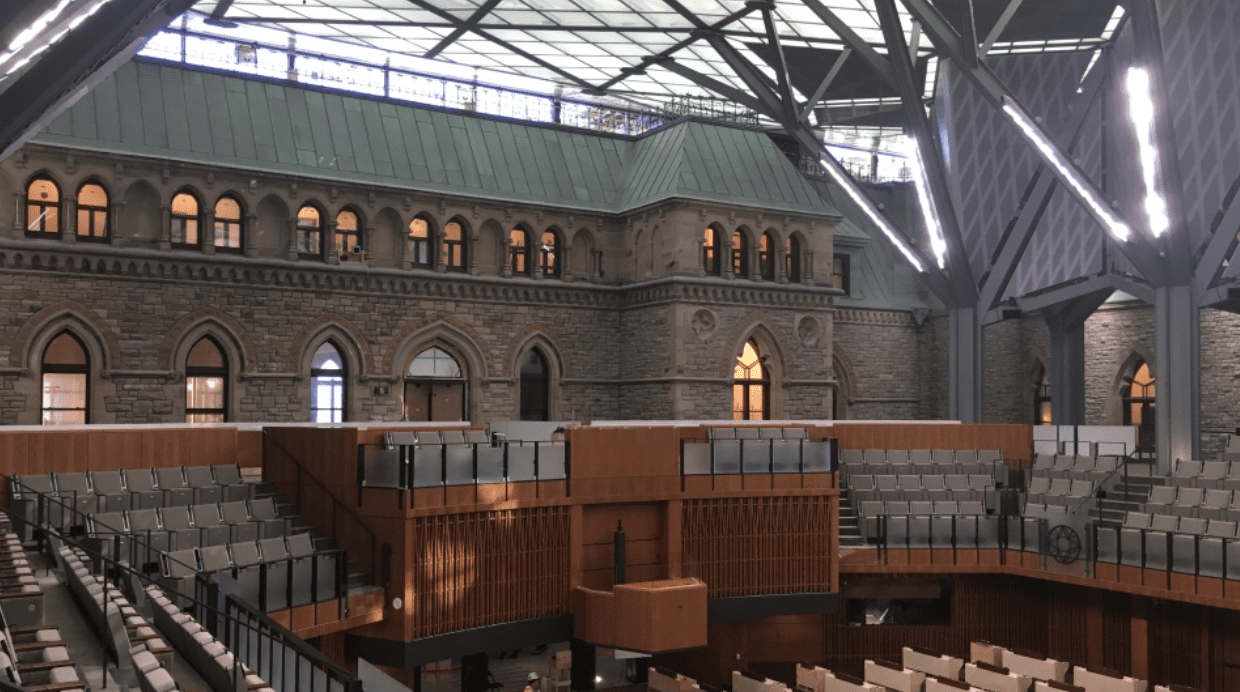
Parliament is being recalled on the Saturday of the Easter weekend to pass more emergency legislation, this time in relation to the wage subsidy, which will largely be about amending the Income Tax Act something that requires the consent of parliament per the Constitution. This could have been done days ago, but a dispute arose between the governing Liberals and the Conservatives when it came to bringing back parliament on a more ongoing basis, while the Liberals insisted on trying to bring back a more "virtual" parliament, and prime minister Justin Trudeau himself was using some fairly lame excuses for why he wanted a virtual meeting than a Skeleton Parliament.
"When we do gather in smaller numbers, it still requires a significant number of support staff to come to work to be there while Parliament is functioning, so that puts them at risk as well," Trudeau said at his Thursday morning presser. "It's also something that doesn't allow for Members of Parliament that live in further-off parts of the country to be weighing in and being sure that their communities are being heard. That's why we are so interested in virtual ways of gathering the House, and we're going to work on that."
There are so many problems with these assertions. First of all, I'm not convinced by the "significant" support staff assertion given that the West Block is already largely staffed, with cleaners, interpreters, and the people who make the daily press briefings there happen even the cafeteria remains open. There may need to be some additional tweaks made around interpretation booths such as setting up temporary additional ones in the lobby space behind the Chamber to allow the interpreters some additional distance, but that shouldn't be too onerous a task. Would MPs need to have their full office complement to sit? Unlikely, and they should be able to carry on most of their work electronically.
I'm also not sold on the notion that a Skeleton Parliament leaves voices of MPs not from near the Ottawa region unrepresented for two reasons. One is that when they draw up the roster of MPs who plan to sit in said Skeleton Parliament, they can make arrangements for MPs from other regions to be represented under the caveat that they will need to be in Ottawa for the duration you know, like how Ottawa used to operate back in the days before cheap flights. After all, Trudeau arranged for Andrew Scheer, Candice Bergen, and Don Plett to be flown to Ottawa for the last emergency bill, and they flew right home after, so this would be a one-way trip. Will that be a hardship for some of those MPs? Probably, but this is a time of crisis. Many members of Cabinet are staying in Ottawa for the duration, so asking a handful of MPs to do the same should not be balked at.
Additionally, this notion that other MPs from their parties are somehow not weighing in is preposterous because they can caucus virtually, with fewer problems than there would be to attempt a "virtual sitting" of Parliament (not to mention you wouldn't have the added complications of Section 48 of the Constitution Act, 1867, require the presence of the Mace, or deal with the sticky issue of parliamentary privilege). MPs who aren't in Ottawa could still pass along their concerns to the MPs who are sitting, and it would be literally the easiest thing for one of the sitting MPs to say "My colleague from [insert riding] is concerned about [insert issue]." They already are used to reading from scripts, why is this any different?
There would likely need to be modified sitting hours there won't be a lot of government legislation, and private members' business would have to be suspended for the duration, but it would allow greater debate on any future measures the government may require and they will almost certainly require future measures. The Conservatives are particularly concerned with holding Question Period during this period, which is fair and necessary for their role in holding the government to account. This could give them some flexibility in arrangements perhaps 20 minutes a day instead of 45, and perhaps they can theme questions to one minister in particular so that they can conserve resources, and ensure that the other ministers can still be working on their files. This could even give us a chance to break away from the 35-second clock which has become stifling, and let them ask more free-flowing questions and we would get a better sense of debate than the scripted puppet theatre that we normally get in QP. If there is a time for such measures, this would be it.
It's especially important that we start having this conversation about how to keep Parliament going in person and not virtually because every iteration of bringing back Parliament for more emergency legislation is untenable. Bill C-12 was passed at all stages with no debate, and wasn't even publicly viewable until after it received Royal Assent. Bill C-13 was renegotiated behind closed doors for 14 hours, and what passed for debate happened at 3 AM for three hours. Robust accountability this was not. The plan for this Saturday looks to be for another three hours to pass the bill at all stages, given that the Commons is slated to start up at 12:30 and the Senate at 4. This is not debate, scrutiny, or accountability. Backroom deals are not on the public record.
Trudeau says that he agrees that Parliament matters and that it shouldn't be cast aside in times like this, and yet that is what he keeps doing, time and again. Attempts at creating a virtual parliament are also backdoor ways of the Liberals looking to change the Standing Orders to allow these kinds of remote attendance that have been rejected several times already, and I don't trust that these measures would be just "temporary." Parliament is an essential service, and it matters, so it's time that Trudeau starts living up to his words, and ensure that the Skeleton Parliament sits for the duration of this crisis.
Photo Credit: CBC News
The views, opinions and positions expressed by columnists and contributors are the author’s alone. They do not inherently or expressly reflect the views, opinions and/or positions of our publication.
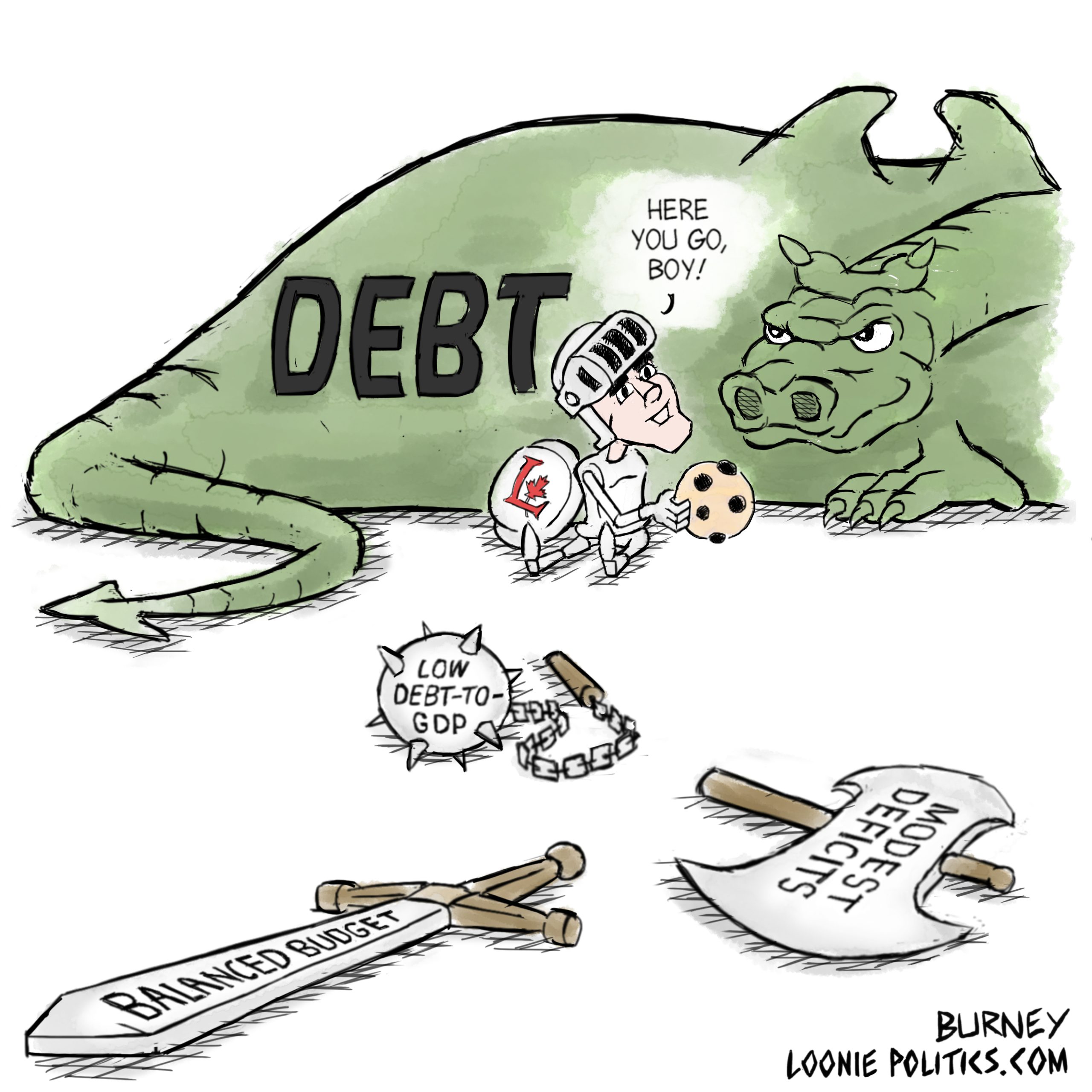
This content is restricted to subscribers
The views, opinions and positions expressed by columnists and contributors are the author’s alone. They do not inherently or expressly reflect the views, opinions and/or positions of our publication.
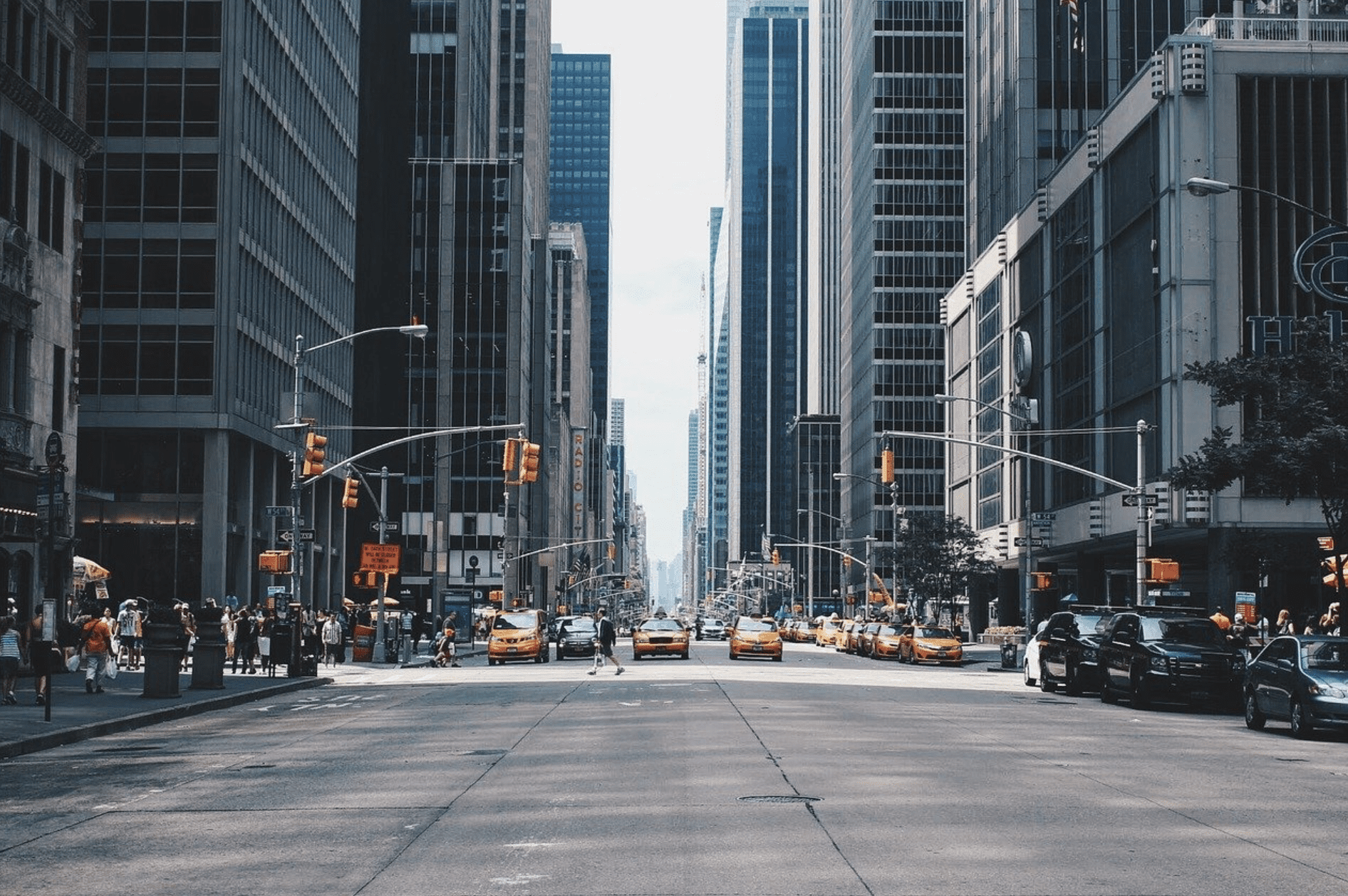
"The streets were packed [this weekend] and that's unacceptable."
—Ontario Premier Doug Ford
"We recognize that people do need opportunities to get outside, to get some fresh air, to get some physical activity. And that's appropriate, if [physical] distancing can be maintained."
—Dr. Eileen de Villa, Toronto's medical officer of health
"On sidewalks, it's tough to keep two metres away from another person as you walk; many sidewalks in Toronto are 1.8 metres wide at best, and standards in suburban municipalities are similar. There simply isn't enough room."
—Alex Bozikovic, Globe and Mail architecture critic
More contagious and far deadlier than influenza, the SARS-CoV-2 virus is sweeping unapologetically through humanity. Our collective lack of immunity to the novel pathogen conjures images of the Martians in H.G. Wells' War of the Worlds succumbing to infection due to an absence of antibodies, their gargantuan metallic tripods collapsing to the ground in harmless heaps.
As the virus spreads, public health officials have given us three primary instructions: wash your hands, don't touch your face, and engage in physical distancing remaining two metres (or six feet) apart from people you don't live with.
That's all well and good, but the latter directive is well-nigh impossible when stepping outside in most Canadian cities. The design of our urban streets has been almost entirely made with the private automobile in mind, cramming pedestrians and cyclists into slender slivers of leftover asphalt. Remaining at an adequate distance from other people is simply unfeasible when the width of a sidewalk is narrower than the prescribed distance of two metres.
Constrained by our current infrastructure, physical distancing advice cannot be adhered to where most Canadians live. The pandemic has made walking, which should normally be a pleasurable act, into a stressful activity a real-life version of Frogger, in which pedestrians desperately attempt to avoid each other within tightly confined spaces. And closure of parks has only exacerbated the problem of pedestrian overcrowding.
To be clear: our unsuitable urban streets design is the result of bad political decisions, rather than an inevitable outcome. (And nor should the population density of cities be blamed for viral spread, as Singapore's relative imperviousness to the pandemic illustrates.)
Europe shows us that cities particularly city centres can be built starkly different than here in Canada. The ample space provided for walking that makes such cities feel distinctly more humane at the best of times is what also renders them safer during pandemics. Rather than allowing cars to be the dominant form of transport, many European city centres make it obvious that they are engineered for people, and that cars are merely interlopers that may only advance cautiously. People are able to spread out during the COVID-19 outbreak without fear of being struck by a recklessly operated ton of steel.
Most Canadian cities, however, treat the quintessential human activity of walking as undesirable. Numerous wide lanes are devoted for cars to race through at high speeds, while pedestrians are shoehorned into the remaining narrow scraps that often feel dangerous and intimidating to traverse. Nothing has made this faulty design as apparent as a pandemic in which we're instructed to spread out something that's simply not possible to do on most Canadian sidewalks.
As a solution to physical distancing requirements, many cities around the world have temporarily appropriated empty street lanes and in some cases, entire streets for walking and bicycling. Winnipeg, Calgary and Vancouver are three such cities here in Canada, but even infamously car-friendly New York City has made such alterations to their roads.
Providing more space for people as a short-term measure during this pandemic doesn't have to be expensive. Many cities have employed inelegant traffic cones as a cheap quick-fix. The biggest hurdle, as always when it comes to improving street design, remains political inertia.
When public calls for Toronto to open its streets became too loud for officials to ignore, city staff rushed in to quash any such hopes. Jacquelyn Hayward, a director with the city's transportation department, dismissed following the lead of other Canadian and international cities, and instead claimed that devoting more space for walking and cycling would "…bring people together, and this is the exact opposite of what we need to see right now."
Not wanting to encourage street parties is one thing, but when a simple walk to the grocery store contravenes physical distancing advice from the city's medical officer of health, it would be nice if car-centric politicians and bureaucrats could be a bit more flexible.
In the long-term, when the SARS-CoV-2 virus is but a painful memory and we're back to repairing existing streets and building new ones, Canadian cities should strongly consider devoting our downtown urban avenues primarily to walking and cycling on a permanent basis. This would mean wider sidewalks, separated and protected cycle tracks (also known as bike lanes), as well as an aggressive increase in public transportation. Cars are king in Canada even, rather inexplicably, in the centres of our largest cities and we're long overdue to rectify this glaring design flaw.
Sadly, the need to retrofit our urban streets remains painfully obvious in Canada's most prominent city: Toronto. After the departure of "transit city" mayor David Miller, Hogtown has spent a decade under his successors a suburban populist and an austerity merchant neither of whom has improved the pedestrian experience to any noticeable degree. Traffic violations are rarely enforced by the city's ineffective police service, while most sidewalks are left unplowed after snowfall. The current mayor, John Tory, has regularly opposed efforts by city staff to improve cycling infrastructure, as keeping taxes low (and services starved) is his re-election raison d'être.
The pandemic's physical distancing requirement has made it obvious that Toronto is in desperate need of urbanist leadership once again. When cities like Winnipeg and Guelph become more innovative on transportation than Canada's economic capital, it raises numerous questions of leadership competency.
Retrofitting our cities for people rather than cars will be a monumentally difficult task. But luckily, such change appears inevitable, especially when we observe transformation in cities like Vancouver, New York and London.
The earliest that Toronto's transportation philosophy may embark upon radical change would be in 2022, after the next municipal election. But until then, Mayor Tory can help us through this dreadful pandemic by opening those damn empty street lanes for people.
We all pay for them.
Photo Credit: Pixabay
The views, opinions and positions expressed by columnists and contributors are the author’s alone. They do not inherently or expressly reflect the views, opinions and/or positions of our publication.
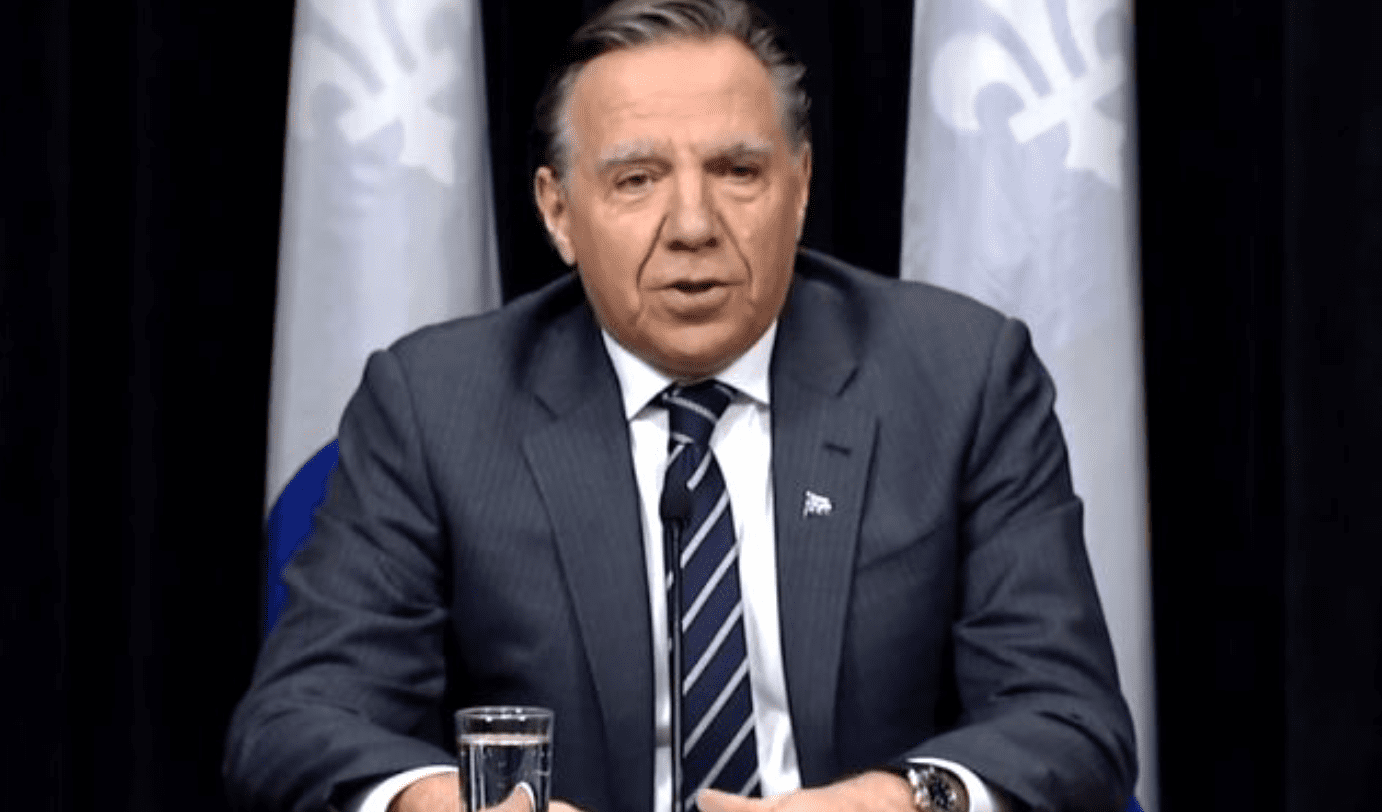
It's been, what, a month of this now?
Days have melted together and stuff that seemed pretty normal no longer are. I, for example, can't spend a few minutes chatting with the woman who lives downstairs as she waits in the lobby for a shuttle to take her to dialysis. I might actually kill her with a bit of friendly banter. Weird stuff.
But we've been doing this long enough now that things are starting to stabilize. And since we've begun to settle into the world as it is now — as dimly horrifying as it may be — we should also maybe take a look at how some of our governments have fared.
Here in Quebec, things are on the surface going reasonably well. The government released projections that outlined a couple of scenarios of the number of people who could die in the next month, an Italy (bad) and a Germany (good), and Quebec is tracking very near to the Germany (good) measure.
Once the province decided to take action, it was quite strong and quite rapid. Gatherings were cancelled, business closed, restaurants swapped into take out joints, school cancelled, etc. But now we see the government's decision not to do anything to stop March Break travel (which takes place here a week earlier than in Ontario) has led to a surge in COVID-19 patients in the province, and by extension deaths.
Then there is the nightmare of long-term care homes and other retirement homes. More than 500 of them have had outbreaks of coronavirus across the province. More than 150 people have died in Quebec in total, and of those 150 people, some 45 percent were in long-term care homes, another 20 percent were in retirement homes. All but three of the deaths were of people aged 70 and over.
Finally, on Tuesday, Premier François Legault said the province would be transferring medical staff from hospitals to the various care homes throughout the province. They had overestimated where the need for doctors and nurses would be, he said, and put their focus on staffing hospitals. Meanwhile, elderly people in Quebec have been being infected with, and dying of, COVID-19. It's horrendous.
Then we have Ontario, where Premier Doug Ford seems to have come to life as a leader. No longer just a bellowing oaf, diving into one policy only to turn back as soon as it became clear it was the wrong move. Now he seems to have grasped the magnitude of the crisis confronting him and his province.
He's lucky, too. His government delayed the bulk of proposed cuts to public health units after public pushback but has not said they will be cancelled. Once can only imagine how much worse things would have been if those cuts had gone through.
The blessings of good fortune should not be confused with doing a good job. Yes, Ford is taking this very seriously now. So seriously it's something that he says it keeps him up at night. But remember this is the same Ford who said, "I just want the families and their children to have a good time [on March Break]. Go away, have a good time, enjoy yourself." That was less than a month ago.
Which brings us to the federal government.
The response from Ottawa has been, shall we say, mixed.
Impressively, the website for the emergency benefits doesn't seem to have fallen in on itself. From a government that has tried, and failed, for years to pay its own employees this is something. But here we are setting a low bar.
For all their efforts, peoples' jobs and businesses are evaporating. People are unable to pay rent. Some bills are being deferred so other bills, that can't be deferred, are being payed.
So while the government is trying very hard to get money to people, and constantly trying to tweak and refine their policies, more and more of our neighbours are sliding into, or ever closer to grinding poverty.
However fast the government may be moving, it is not moving fast enough for the people being left behind.
Whatever structural reasons there are for this. Which implies the government has bothered to explain any mechanical difficulties there may be to getting more money to more people. They of course have not. If there's one thing this crisis has not changed for this government is its willingness to say anything meaningful at all.
I could probably give you a solid 500 more words on their abandonment of freelancers like myself, but I'll save you the self-indulgence and say just this: There may well come a time that it makes more sense for me to stop working — or at least accepting money for work — so that I can qualify for emergency COVID benefits. Not ideal!
And that's just the economic stuff.
Even once March rolled around and the government was telling us to stay apart and lock ourselves away if we had a cough or had come back from abroad, border guards at airports were just letting people through without so much as a question about their health. They fell down so badly, provinces and cities had to send their own health officials to airports to tell people they needed to stay home upon their return.
Once things settle further — maybe when this is all over, maybe before — we're going to have a reckoning with the response of our governments. While they have come around, it took too long. At this writing at least 380 Canadians have died, with untold numbers more of people who have been left with some level of lasting effect of this virus.
Some of those people might still be with us, still might be unscarred, if things had gone differently. We need to reckon with that.
Good-enough government isn't good enough when the cost of failure can be measured in the dead.
Photo Credit: Cmatv.ca
The views, opinions and positions expressed by columnists and contributors are the author’s alone. They do not inherently or expressly reflect the views, opinions and/or positions of our publication.